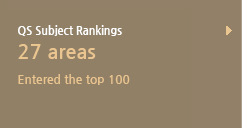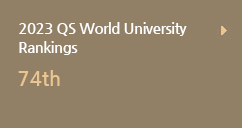Korea University
-
About KU
About KU
Korea University Since 1905
-
Admissions
Admissions
Korea University Since 1905
-
Schools
Schools
Korea University Since 1905
- Undergraduates
-
Graduates
- Overview
- Graduate School
- School of Law
- Graduate School of Business Administration
- Graduate School of International Studies
- Graduate School of Information Security
- Graduate School of Energy and Environment
- Graduate School of management of technology
- KU-KIST Graduate School of Converging Science and Technology
- Graduate School of Legal Studies
- Graduate School of Life and Environmental Sciences
- Graduate School of Policy Studies
- Graduate School of Engineering & Technology
- Graduate School of Education
- Graduate School of Public Health
- Graduate School of Computer and Information Technology
- Graduate School of Media & Communication
- Graduate School of Labor Studies
- Graduate School of Clinical Dentistry
-
Academics
Academics
Korea University Since 1905
-
Campus Life
Campus Life
Korea University Since 1905
-
Research
Research
Korea University Since 1905
-
KU Newsroom
KU Newsroom
Korea University Since 1905

- About KU
- Admissions
-
Schools
- Overview
- Korea University Business School
- College of Liberal Arts
- College of Life Sciences and Biotechnology
- College of Political Science & Economics
- College of Science
- College of Engineering
- College of Medicine
- College of Education
- College of Nursing
- College of Health Science
- College of Informatics
- School of Art & Design
- College of International Studies
- School of Media & Communication
- School of Interdisciplinary Studies
- School of Smart Security
- Division of Psychology Studies
- Overview
- Graduate School
- School of Law
- Graduate School of Business Administration
- Graduate School of International Studies
- Graduate School of Information Security
- Graduate School of Energy and Environment
- Graduate School of management of technology
- KU-KIST Graduate School of Converging Science and Technology
- Graduate School of Legal Studies
- Graduate School of Life and Environmental Sciences
- Graduate School of Policy Studies
- Graduate School of Engineering & Technology
- Graduate School of Education
- Graduate School of Public Health
- Graduate School of Computer and Information Technology
- Graduate School of Media & Communication
- Graduate School of Labor Studies
- Graduate School of Clinical Dentistry
-
Academics
- Academic Calendar
- Certificate Issuance
- Majors/ Curriculum
- Enrollment/ Scholarships
- Education Program
- Contact/ forms
- Go to Academics
-
Campus Life
-
Research
-
KU Newsroom


